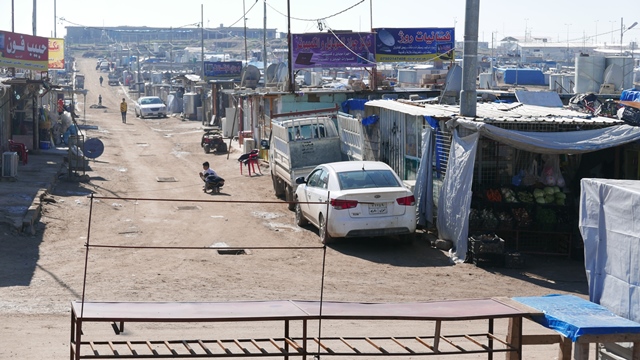Protected rather than protracted—Strengthening refugees and peace
Status
closed
Topics
- Migration and Forced Displacement

The majority of refugees and internally displaced persons (IDPs) find themselves displaced for more than five years—either in their own or in neighbouring countries. Of the three durable solutions for these so-called protracted refugee situations—local integration, resettlement in third countries and repatriation—the latter is still considered to be the best option by most stakeholders. Yet, due to the increasing prevalence of protracted conflicts worldwide, voluntary return often is not possible. Thus, as only very small numbers of displaced persons are eligible for resettlement, the most relevant issue for the vast majority of displaced persons is local integration. Even though return and local integration of displaced persons have increasingly featured on the agendas of researchers and politicians in the past few years, effective sustainable solutions for practical implementation are lacking.
In January 2015, BICC started the four-year research project entitled “Protected rather than protracted—Strengthening refugees and peace” as a response to the challenges posed by reintegration respectively local integration of displaced persons and their participation in peace processes. This project is funded by the German Federal Ministry for Economic Cooperation and Development (BMZ) in the framework of its Special Initiative “Fighting the causes of refugee movements, reintegrating refugees”. In the centre of the project is the collection of empirical data from seven regions, their comparative analysis and the elaboration of concrete proposals for action.
Field research will be led by three main questions:
· What chances and risks can be observed during the reintegration of refugees and IDPs or rather what makes reintegration sustainable and successful?
· Under which conditions does the participation of refugees and IDPs in peace processes play a key role in the sustainability of their return and peace?
· How can local integration contribute to the development of host communities and support displaced persons in their current situation?
The dialogue-oriented research will be conducted with refugees, IDPs, decision-makers, experts and representatives of national and international organisations in the following seven regions: Middle East; Eastern Africa; Afghanistan/Iran/Pakistan; Southeast Asia; the Great Lakes region; Upper Guinea Coast; Colombia/Ecuador. Information is collected on-site, in and outside of refugee and IDP settlements, and discussed during workshops with all parties. BICC will draw lessons from the observed practice to develop recommendations for action intended to strengthen displaced persons and peace in the long term.
Project Leader
- Dr Markus Rudolf
Project Team
- Dr. Heidrun Bohnet
- Laura Gerken
- PD Dr Elke Grawert
- Dr Katja Mielke
- Professor Dr Conrad Schetter
- Clara Schmitz-Pranghe
- Ruth Vollmer
Funder
- BMZ
Duration of project
2015-2018


